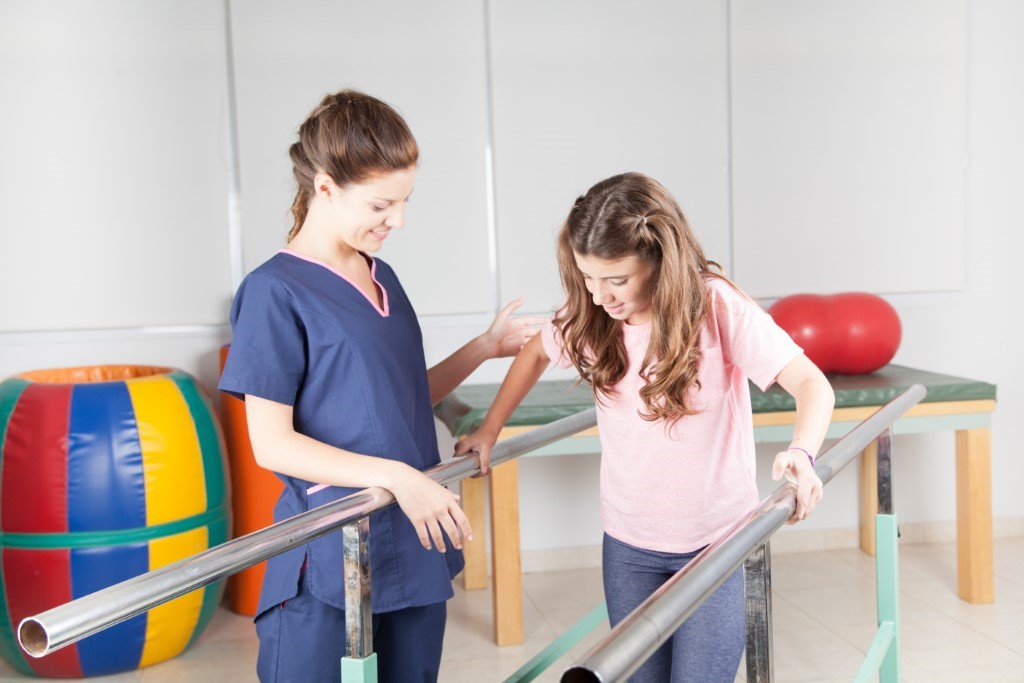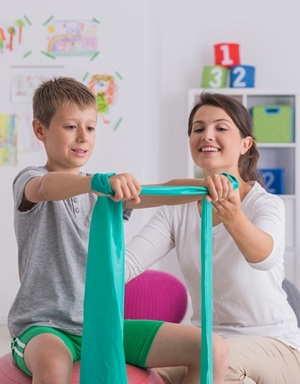5 Ways Disability Physiotherapy Can Improve Your Children’s Mobility and Independence
Children are expected to play and perform different kinds of physical activities, whether it’s jumping, running, dancing, or climbing. But for many kids with special needs and disabilities, doing these seemingly simple movements can take a toll on their little bodies. They might even hurt themselves.
However, disability physiotherapy can improve their mobility and, in turn, their independence. Through this approach, children can learn to operate their bodies accordingly and perform some basic tasks themselves at their own pace.
Are you intrigued by the possibilities of this solution? Then, read on to learn the ways disability physiotherapy can improve your child’s quality of life.
1. Enhancing Muscle Strength and Endurance
For the 7.3 million students with disabilities currently in American public K-12 schools, disability physiotherapy could be a viable care solution, especially to increase their muscle strength and stamina. Kids with special needs may have weak muscles that need immediate attention. (1)
Disability physiotherapy focuses on strengthening them and improving endurance through:
- Resistance training: Kids use weights, bands, or their body weight to build muscle strength.
- Aquatic therapy: Water exercises relieve the joints from pressure while increasing children’s muscle power.
- Functional training: This involves activities that mimic everyday tasks to strengthen muscles needed for daily living.
Children with special needs will develop more endurance in daily tasks such as dressing up or climbing stairs. They’ll also be less likely to suffer from falls and injuries.
You can find out more about what usually happens in a disability physiotherapy program by browsing official websites of reputable providers. Services like the training mentioned above are often tailored to a person’s age and condition, so you can rest knowing that treatment and exercises are well-suited for your child’s needs.
2. Improving Balance and Coordination
Children with disabilities may face challenges in balance and coordination, which are needed for safe and independent movement.
Physiotherapy could help through proprioception exercises, like standing on a wobbly board, to help a child’s body know where it is in space. Meanwhile, vestibular exercises, like spinning around, engage the inner ear and improve balance. Physiotherapists may also use visual-motor integration activities, like catching a ball, which helps kids coordinate their eyes and hands.
Research shows parasports boost disabled children’s social status among abled peers. That’s why developing balance and coordination is essential for these kids. (2)
3. Enhancing Fine Motor Skills
If your child has been diagnosed with a disability, such as cerebral palsy, early intervention is a must. Many special needs children, including those with autism, experience challenges using their fine motor skills. Remember learning how to button a shirt or write your name? These things take a lot of practice, and for some kids, it can be harder.
Disability physiotherapy could help children develop these skills through:
- Hand strengthening exercises: Activities like squeezing a ball or playing with a toy help strengthen the muscles in the hands and fingers.
- Sensory integration activities: These wake up children’s senses, help their bodies move better, and improve coordination.
- Occupational therapy techniques: Physiotherapists have specialized techniques to help develop fine motor skills.
A child with improved fine motor skills may be more independent in self-care tasks, have better handwriting, and perform better academically.

4. Promoting Functional Independence
Practicing daily skills in real-life situations helps build functional independence in children. In physiotherapy, this may involve assistive technology, like wheelchairs or braces, which can be helpful for kids with special needs.
Other options are adaptive equipment, such as modified utensils or bathroom aids, and functional training, like practicing getting dressed while sitting on a mat. These activities ease kids’ daily tasks and help them become more independent.
Independent special needs children have better self-esteem to do activities on their own or participate alongside family, friends, and classmates.
5. Pain Management and Symptom Relief
According to one study, more than 90% of children with disabilities say that they have under-assessed and undertreated pain. Often, it’s physical pain that hinders special needs children from performing basic activities and reaching their full potential. (3)
Disability physiotherapy helps in pain management and improves general well-being. Physiotherapists may consider manual therapy methods like massages and mobilization to manage musculoskeletal pain. Kids may also undergo breathing exercises and relaxation techniques during sessions in a physiotherapy clinic, which are common pain management strategies. Sometimes, procedures like heat, cold, and electrical stimulation may be included as a therapeutic way to reduce pain and inflammation.
When pain is under control, kids with special needs can focus on having fun and doing the things they enjoy.
Tips for Working With a Disability Physiotherapist
If your child is used to sleeping in another position, it might take some time to adjust, but it’s worth it for the long-term health benefits. If this results in more discomfort for you child over time, it may be worth looking into treatment from your local physiotherapist. When looking for and working with a disability physiotherapist, here are some extra tips to follow:
- Select a qualified therapist: Look for a physiotherapist with experience working with children with disabilities.
- Effective communication: Share information about your child’s medical history, goals, and concerns with the physiotherapist.
- Home exercises: Practice home exercises as prescribed by the physiotherapist to reinforce progress made in therapy sessions.
- Collaboration with other healthcare providers: Work with other healthcare professionals, like doctors, occupational therapists, and speech therapists, to create a comprehensive care plan. Explore financial support options for families with children of disabilities.
Early intervention through disability physiotherapy helps children improve not only their physical condition but also their social skills, which are important in building independence.
Final Thoughts
Disability physiotherapy can help kids with special needs become more mobile and independent. Pediatric physiotherapists best understand the needs of children with physical and developmental disabilities, so they tailor their strategies to each one in their care.
Through targeted exercise and expert guidance, these children may be able to live their lives more confidently with less pain and more happiness.
References
- “What federal education data shows about students with disabilities in the U.S.,” Source: https://www.pewresearch.org/short-reads/2023/07/24/what-federal-education-data-shows-about-students-with-disabilities-in-the-us/
- “The importance of sport for children with disabilities – and the lengths their parents go to access it,” Source: https://theconversation.com/the-importance-of-sport-for-children-with-disabilities-and-the-lengths-their-parents-go-to-access-it-201825
- “Paediatricians’ Views on Pain in Children with Profound Intellectual and Multiple Disabilities,” Source: https://pubmed.ncbi.nlm.nih.gov/33807064/




